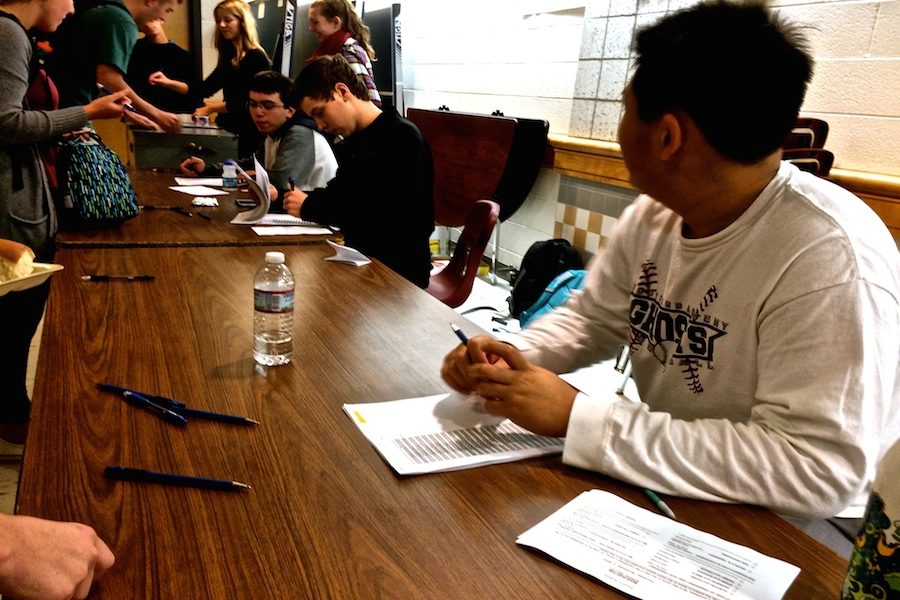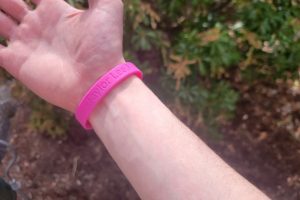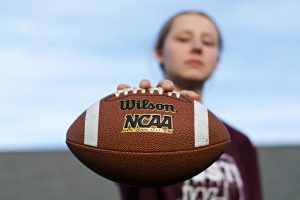WA takes on democracy with mock election
November 4, 2016
720 WA students and faculty members voted in a mock election on November third, in order to determine the majority’s opinion on both state and federal issues. With a ballot similar to that of the actual 2016 election, issues ranged from who to elect as the next United States president to decisions on the Massachusetts ballot regarding the expansion of slot machines, funding for state charter schools, treatment of farm animals, and the legalization of cannabis.
Only five days until the official 2016 election, voters and soon-to-be voters were given the chance to express their political views in a democratic form, with student and teacher volunteers taking ballots and checking off the names of those who have already voted throughout all four lunches.
The vote for President of the United States resulted in a win for Secretary of State Hillary Clinton. While Clinton won 349 of the 723 votes cast total, her opponent, republican candidate Donald Trump earned the votes of 217 students and faculty members.
Although there was a margin of 132 votes between the two candidates, this gap is far too slim for some students at WA.
“I think its extremely terrifying that the margin by which Hillary won so slim. While voting for Trump, I don’t think people realize that they are voting against the rights of many people,” said junior Medha Palnati.
Regarding the house of Representatives, WA voted in favor of Congresswoman Niki Tsongas, who won 468 of the 723 votes. Her republican opponent, Ann Wofford, earned 311 votes, bearing a wider margin than the results for the Presidential vote.
On the ballot questions, voters did not favor ballot measures one and two, but supported measures three and four. Ballot question one, proposing the expansion of slot machines in Massachusetts, was rejected with close to 420 voters not in favor, and 300 voters in favor of the proposition. Question two, proposing expanded funding for state charter schools, was shot down with an even wider margin. Nearly 460 voters rejected question two, while 263 voted in favor of it.
The widest margin of all ballot questions, however, was proposition three, which would create a minimum living space for farm animals in Massachusetts. Question three was voted in with an overwhelming majority of approximately 525 voters in favor of the proposition, and 198 opposed to the regulation.
Opposers of question three argued that meat and egg prices would skyrocket if farmers were limited in the amount of land their animals were reduced to living in. Supporters, on the other hand, claim that it is a business’ responsibility to treat their animals humanely, while compensating for the additional costs of raising healthy animals.
Question four, the proposition which would allow adults twenty-one and older to grow, possess, and consume marijuana on private premises, was supported by a majority of nearly 400 voters, while it was rejected by close to 3o0 students and faculty members.
Many believe this experience allowed students a chance to fully understand the issues at stake in this election.
“I thought the kids’ responses to the Massachusetts ballot questions were very thoughtful. My sense was that people read the ballot questions, understood them, and made good decisions. I think that is true through all of the the ballot questions,” said history teacher Christopher Gorham.







